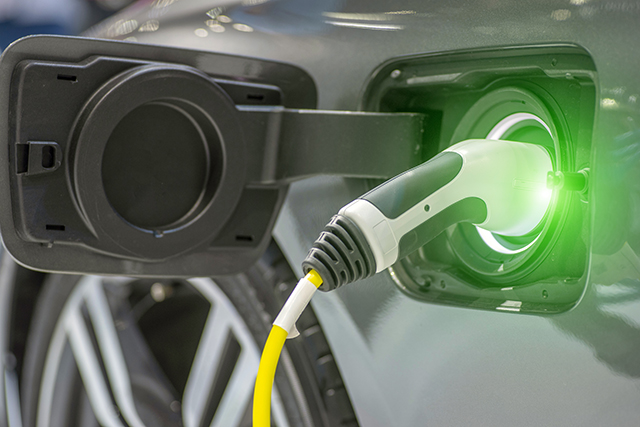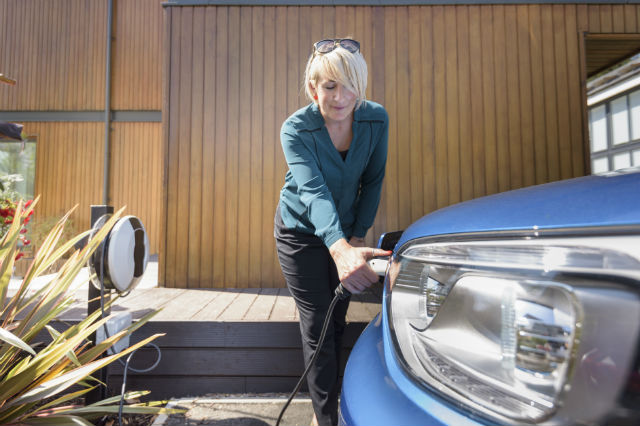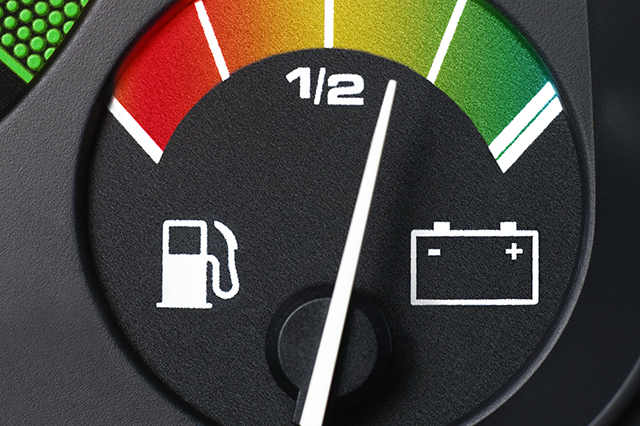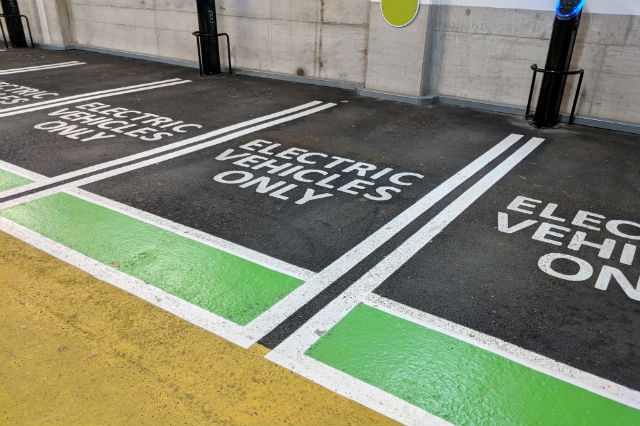Although they still represent a small percentage of the cars on U.S. roadways, electric vehicles are becoming more popular with each passing month. There were about 330,000 plug-in electric vehicles sold in the U.S. in 2019. So even if you don’t have an electric car now, it’s likely that you’ll be sharing a ride in one sometime soon. Either way, it’s a good idea to get familiar with electric car charging stations.
Charging Levels
There are three standard electric car charging levels. All electric cars are capable of being charged on Level 1 and 2 stations. Some vehicles, however, cannot charge at a Level 3. In addition to these, Tesla uses a proprietary charger, the Tesla Supercharger, that is only for Tesla vehicles.
Level 1 chargers are typically for home use for two reasons. First, they can be plugged into a standard outlet without any installation. Additionally, they deliver a weaker charge, which requires a significantly longer charging time. Level 1 chargers typically deliver about 2 to 5 miles of range per hour of charging. Most electric car drivers will use a Level 1 at home to charge their cars overnight.
Level 2 chargers are most commonly found at commercial charging stations. (They can be used in a residential setting but need to be installed by a professional electrician since they can’t be plugged into a traditional outlet.) Level 2 chargers deliver 10 to 60 miles of range per hour of charging. They can fully charge an electric car battery in as little as two hours.
Level 3 chargers, also known as DC fast chargers, can provide 60 to 100 miles of driving to your car battery in as little as 20 minutes. However, not all electric cars are compatible with Level 3 chargers, including most plug-in hybrids and even some all-electric vehicles.

How to Find Charging Stations
As more electric vehicles take to the roads, more charging stations are popping up, but they’re still not nearly as ubiquitous as traditional gas stations. Therefore, it’s always important to know where you can get a charge, especially if you’re traveling through a new area.
The easiest way to locate electric vehicle charging stations is by using another piece of popular technology: your smartphone. There are several apps that provide electric car charging station maps. The AAA Mobile app, available for both iPhone and Android platforms, lists all charging stations in your area (as does AAA’s online TripTik Travel Planner).
Google Maps also has a feature that lets users discover charging stations on their route. Simply searching terms such as “EV charging” or “EV charging stations” will pinpoint all the nearest locations. It will also show drivers the types of ports available, the number of ports at the site and their charging speeds.
Another useful tool is the ChargePoint app. With more than 60,000 locations, ChargePoint is the largest network of electric vehicle charging stations in the US. The company’s app goes one step further by informing users in real-time how many ports are available for use.

How Much Does It Cost?
Individual charging stations set their own pricing structure. Many locations are free to use, while others may be free for a few hours before starting to charge. Some car manufacturers will even have their own unique payment system. For instance, certain Tesla models include an annual charging credit. Once you surpass the allotted amount, a small fee applies.
If you know what station you’re planning to use beforehand, make sure to check what fees are associated with a particular spot before you hit the road.

Know Your Car’s Range
Just as you would check how much gas is in the tank before pulling out of the driveway, you should know how far your electric battery is capable of taking you before embarking on your trip. But in certain cases, your car’s battery life doesn’t tell the whole story.
AAA research has found that extreme temperatures can have a drastic effect on the driving ranges of electric cars. In 20-degree temperatures, driving range was reduced by 12 percent. With the car’s heat running, driving ranges decreased by 41 percent. When temperatures rose to 95 degrees, there was a 4-percent decrease in electric vehicle range.
Visit AAA’s Electric Vehicle platform for more information on these cars of the future.
Motorists can find electric car charging stations with the free AAA Mobile app for iPhone, iPad and Android. The app can also be used to map a route, find discounts, book a hotel and access AAA Roadside Assistance. Learn more at AAA.com/Mobile.
One Thought on “What to Know About Electric Car Charging Stations”
Leave A Comment
Comments are subject to moderation and may or may not be published at the editor’s discretion. Only comments that are relevant to the article and add value to the Your AAA community will be considered. Comments may be edited for clarity and length.


















I leased 2 Chevy Volts, a 2014 and a 2017 for a total of 6 years. I was very happy with them. I had a level 1 charging system in my garage and could plug the cars every day after work. After GM cancelled the Volt, there was no option except to purchase a level 2 or 3 converter to plug in at commercial charging stations. 3rd party conversion, $2000.00, no GM support. I do not like 3rd party conversions. Factory installed is my preference. I am now driving a gas user SUV again. I will wait another year to see what the big guy manufacturers come up with. I want another electric vehicle. Maybe I will try the new 4 door Ford electric Mustang. Understand that if you do not have a garage or drive way, as many city dwellers do not, you can not plug in. I can plug in. I would like to have an EV with the capability to plug in to 120v, 240v or level 3 with a converter that allows all 3 options. No extra charge.